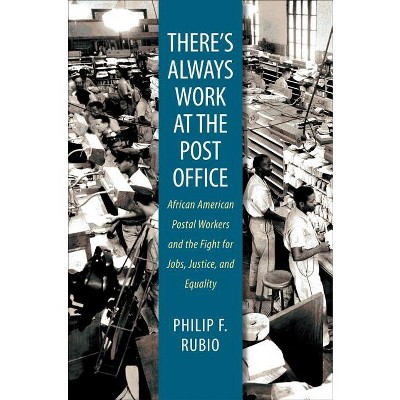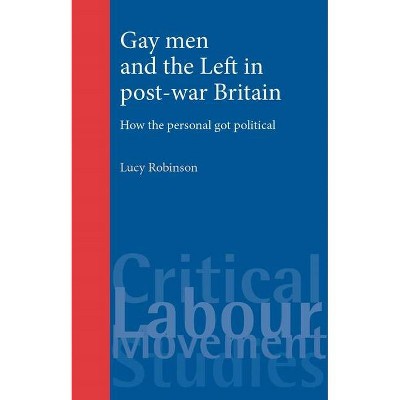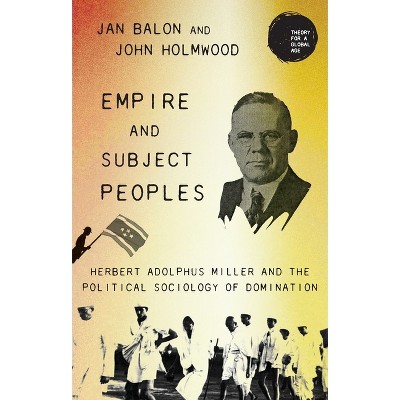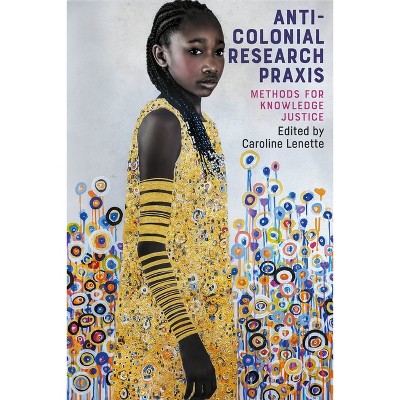Sponsored

Threads of Labour - by Lisa Taylor (Hardcover)
In Stock
Sponsored
About this item
Highlights
- Charting a collaborative art-based project using carpet-making skills and the industrial heritage of the region, the book investigates how a cleaved ex-industrial community used arts methodologies as a cohesion strategy.
- About the Author: Lisa Taylor is Reader in Cultural Studies at Leeds Beckett University
- 256 Pages
- Social Science, Sociology
Description
About the Book
Threads of labour examines the effects of ruination and loss of community in an ex-industrial village. Charting a collaborative project of hope using carpet-making skills and industrial heritage, the book investigates how a cleaved ex-industrial community used arts methodologies as a strategy of re-making.Book Synopsis
Charting a collaborative art-based project using carpet-making skills and the industrial heritage of the region, the book investigates how a cleaved ex-industrial community used arts methodologies as a cohesion strategy. Drawing on images from the company's archives, the book mines the history of Firths Carpets Limited, a firm that carpeted interiors across the globe from the mid-1800s. Women's labour and tastes were business critical to the production and sale of Firths carpets. Drawing on the author's personal connection to the village, an ethnographic sensibility and novel research techniques, ex-worker responses to a village radically altered by ruination are explored. Ex-workers felt nostalgia for the dignity of work and a sense of homesickness in a village ghosted by industrial spectres of the past. Threads of Labour argues that left-behind deindustrialised places require acts of social re-making if their communities are to survive.From the Back Cover
'Bringing together former mill workers and new residents now living on the former mill site, Threads of labour bridges the social distance by inviting participants into each other's lives. The regenerative possibilities of sharing stories are clear to see in this beautifully woven tapestry of histories.'
Steven High, Professor, Concordia University, author of Deindustrializing Montreal
Tim Strangleman, Emeritus Professor, University of Kent, author of Voices of Guinness 'By listening to former workers in this once-thriving carpet industry, Taylor manages to make their feelings of loss and dispossession a tool for understanding the industrial past and the changing relationship of people to the places they inhabit. A great piece of scholarship that reads like a novel.'
Gilda Zazzara, Associate Professor, Ca' Foscari University of Venice When the mills of Firths Carpets Limited closed, the social fabric of a once-thriving industrial village unravelled. Charting a collaborative arts-based project that revived carpet-making skills and textile heritage in the region, Threads of labour explores how deindustrialised communities can rebuild through acts of social re-making where government initiatives have fallen short. Drawing on a wonderful cache of images from the company's archives, the book mines the history of a firm that carpeted interiors at home and across the globe from the mid-1800s, charting the company's fortunes as the dour 1930s gave way to the affluence of the 1950s. In ethnographic interviews, former workers now navigating a transformed landscape express nostalgia for the dignity of work and a lost sense of belonging. Deeply personal and richly researched, this book reveals how creative arts can spark conversations about lost labour, industrial decline, and the power of collective memory--offering radical hope for fractured communities.
Review Quotes
'Deindustrialization is often a violent process that tears apart working-class communities. That is why memory projects like this one are so very important. Bringing together former mill workers and new residents now living on the former mill site, Threads of Labour bridges the social distance by inviting participants into each other's lives. The regenerative possibilities of sharing stories are clear to see in this intimate and bittersweet journey. It is a beautifully woven tapestry of felt histories.'
Steven High, author of Deindustrializing Montreal: Entangled Histories of Race, Residence and Class
Tim Strangleman, Emeritus Professor of Sociology at the University of Kent, and author of Voices of Guinness 'Lisa Taylor weaves together autoethnography and history to capture the living memory of a small deindustrialised community in West Yorkshire. By listening to the former workers in the once-thriving carpet industry, she manages to make their feelings of loss and dispossession a tool for understanding the industrial past and the changing relationship of people to the places they inhabit. With an impressive palette of research methods, she reminds us how work has shaped values and spaces, personal identities and social relationships. A great piece of scholarship that reads like a novel.'
Gilda Zazzara, Associate Professor of Contemporary History, Ca' Foscari University of Venice
About the Author
Lisa Taylor is Reader in Cultural Studies at Leeds Beckett UniversityShipping details
Return details
Frequently bought together


Trending Non-Fiction















